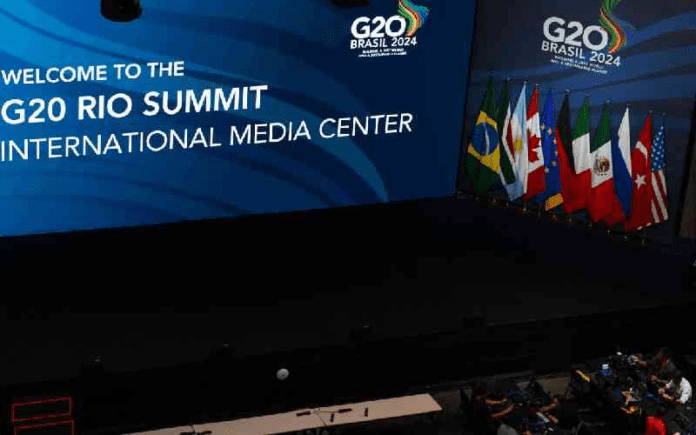By AFP
Top diplomats from the Group of 20 (G20) major economies are set to convene in South Africa on Thursday for high-level discussions. However, the meeting is overshadowed by the absence of the United States’ top diplomat, signaling geopolitical tensions.
The two-day gathering, the first of its kind in Africa, serves as a precursor to the G20 summit scheduled for November. South Africa, which assumed the G20 presidency last year, aims to amplify the voices of developing nations and push for greater engagement from wealthier counterparts.
With representation from 19 countries, along with the European Union and the African Union, the G20 accounts for over 80 percent of the global GDP and two-thirds of the world’s population. Yet, diplomatic friction has emerged, particularly with Washington.
US Secretary of State Marco Rubio declined to attend the meeting, citing concerns over South Africa’s alleged “anti-American” stance. His absence comes amid strained relations, with Pretoria previously facing US criticism over its foreign policies.
Key issues on the agenda include ongoing conflicts in Africa and Europe, according to South African ambassador Xolisa Mabhongo. However, analysts note that the broader geopolitical landscape—particularly the war in Ukraine—will dominate discussions.
Recent remarks by US President Donald Trump, which appeared to shift blame onto Ukraine for Russia’s 2022 invasion, have further strained diplomatic ties. The statement followed secretive US-Russia talks in Saudi Arabia, which excluded Ukrainian officials.
According to Priyal Singh, a senior researcher at the Institute for Security Studies in Pretoria, the G20 meeting unfolds amid deepening divisions between the United States and its European allies. This rift, he warns, could undermine South Africa’s efforts to advance a unified developmental agenda.
Despite Rubio’s absence, the US will send Dana Brown, deputy chief of mission at its Pretoria embassy. South Africa’s Foreign Minister Ronald Lamola dismissed concerns over Washington’s decision, emphasizing that the US remains represented.
“It’s not a complete boycott,” Lamola told reporters on Wednesday, reassuring that discussions would proceed as planned.
Meanwhile, top diplomats from Russia, China, and India have confirmed their participation, alongside European representatives, including France’s Jean-Noel Barrot and the UK’s David Lammy.
Yet, political analyst William Gumede warns that Rubio’s no-show could divert attention from the forum’s core objectives. “It sends a message that the US is not prioritizing Africa,” said Gumede, a professor of public management at the University of the Witwatersrand.
Tensions between Washington and Pretoria have escalated in recent months, with the US freezing critical aid to African nations. South Africa, in particular, has faced financial repercussions over policies related to land reforms and its legal challenge against Israel at the International Court of Justice.
Trump has previously accused the South African government of seizing land from white farmers and discriminating against specific groups—claims Pretoria has firmly rejected as misleading. Officials insist they will not be “intimidated or bullied into submission.”
As the G20 meeting unfolds, the key question remains: Can South Africa turn Washington’s absence into an opportunity to strengthen ties with other global players.







